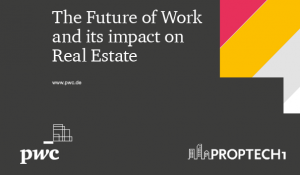
Transforming real estate assets into energy assets: A paradigm shift towards an iterated asset class
There is a big opportunity to turn traditional real estate assets into energy assets. Assets will play a crucial role in updating the energy infrastructure as the current one is developed for centralised energy generation. More and more Start-Ups are developing new value propositions along this value chain; fueled by economic incentives and heavy regulatory tailwinds.

The time value of carbon on our investment decision making
The transition to net zero is underway. We need to minimise our emissions to have any hopes of maintaining our 1.5°C targets. Doing so requires

What would a perfect energy storage system in the UK look like?
The UK’s energy grid needs help. Sometimes we generate too much renewable energy, and we have nowhere to put it, or we can’t move it to somewhere where it needs to go. This doesn’t sound like a problem, except having “extra electricity” flowing around the grid is bad.

Your home isn’t renovated in a day: Why PropTech1 invested in 42watt
One of the most hotly debated topics these days is people’s ongoing search for ways to cut their energy usage. Because for some regions and cities, gas prices have gone up by easily 100% within the year, or even just a couple of months, the increase in energy prices has become a financial threat even to the middle class.

Removing carbon dioxide from the atmosphere: Why PropTech1 invested in NeoCarbon?
The climate crisis is now a reality that is having an increasingly tangible impact, forcing consumers, politicians and businesses to reduce emissions as drastically and as quickly as possible.

WHITEPAPER: The Future of Work and its Impact on Real Estate by PT1 and PwC
If there is one good thing to say about COVID-19 is that it has had a catalytic effect on the acceptance of a new kind of work, having forced a flexible working era upon many sectors and companies. The persistent reservations against WFH – work from home – were simply wiped away by plain necessity. And many employees have gotten used to this new paradigm.




